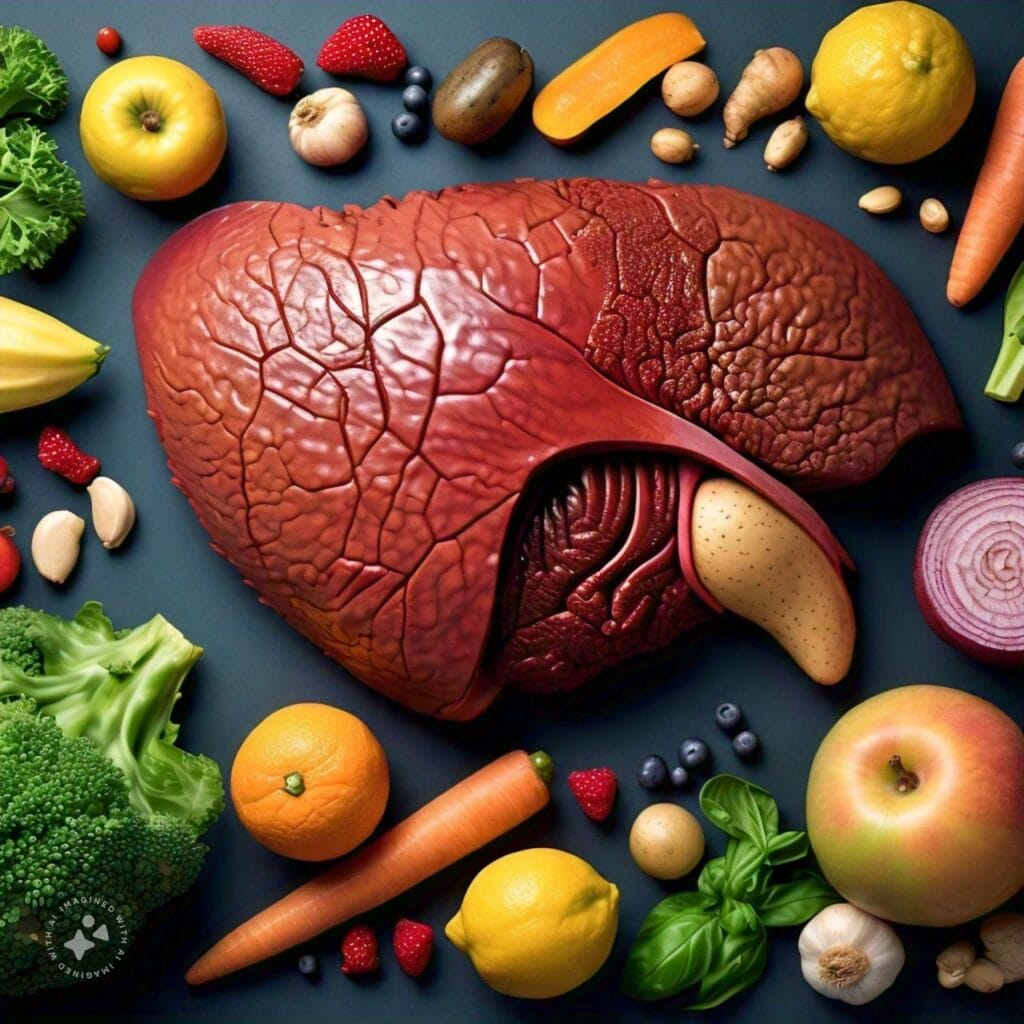An Article “A Complete Protein and Easy To Digest” provides you important tips for The liver plays a vital role in breaking down proteins, producing essential enzymes, and filtering toxins from the body.
When the liver is damaged or not functioning properly due to liver disease, managing your protein intake becomes crucial. Protein and Liver Disease: How to Manage Your Diet for Optimal Health – “A Complete Protein And Relatively Easy To Digest” Consuming the right amount and type of protein can support your liver health, while too much or the wrong kinds can lead to complications. How does protein affect liver disease, and how can you manage your diet for better outcomes?
In this blog “““A Complete Protein And Easy To Digest” , we’ll explore how liver disease changes your protein needs, what the best sources of protein are, and why a carefully balanced diet is essential for those living with liver conditions. Let’s dive into how to support your liver health with the right protein choices.
What is Liver Disease, and How Does It Impact Protein Metabolism?
““A Complete Protein And Easy To Digest”
Liver disease encompasses a range of conditions, from fatty liver disease and cirrhosis to hepatitis and liver cancer. Each condition impacts the liver’s ability to process nutrients, including protein, which is essential for tissue repair, muscle maintenance, and immune function. But when the liver is impaired, its ability to metabolize protein is reduced.
In liver disease, proteins are broken down more slowly, and ammonia, a toxic byproduct of protein metabolism, can build up in the bloodstream. This can lead to complications like hepatic encephalopathy, a condition where high ammonia levels affect brain function. As a result, managing protein intake becomes critical for people with liver disease.
How Much Protein Should I Eat If I Have Liver Disease?
““A Complete Protein And Easy To Digest”
One of the most important questions for people with liver disease is: How much protein should I consume daily? Protein needs vary based on the type and severity of liver disease, as well as your overall health and activity level.
For most individuals with liver disease, moderate protein intake is recommended to avoid muscle loss without overburdening the liver. In general:
- For early-stage liver disease (such as fatty liver), aim for about 1.0-1.2 grams of protein per kilogram of body weight. For example, if you weigh 70 kg (154 lbs), this would translate to 70-84 grams of protein per day.
- For more advanced stages, such as cirrhosis, protein needs may be slightly reduced, around 0.8-1.0 grams per kilogram, to avoid excess ammonia production.
However, people with advanced liver disease or those experiencing hepatic encephalopathy may need to restrict protein even further. Always consult with a healthcare professional or dietitian to determine your exact protein needs based on your condition.
What Are the Best Sources of Protein for Liver Disease?
“A Complete Protein And Easy To Digest”
An article ““A Complete Protein And Relatively Easy To Digest” suggest that Not all proteins are created equal, especially when dealing with liver disease. Choosing high-quality protein sources that are easier for the liver to process is essential. Here are the best types of protein for people with liver disease:
- Plant-Based Proteins: These are often easier on the liver and produce less ammonia during digestion. Great options include lentils, beans, tofu, and quinoa.
- Fish and Lean Poultry: Lean animal proteins like fish and skinless chicken breast are good choices. Fish, particularly fatty fish like salmon and mackerel, are also high in omega-3 fatty acids, which can help reduce inflammation in the liver.
- Eggs: Rich in essential amino acids, eggs are a complete protein and relatively easy to digest, making them a great option for liver disease patients.
- Dairy Products: Low-fat dairy options like Greek yogurt and cottage cheese provide protein and are often lower in fat, reducing strain on the liver.
- Whey Protein (in moderation): Whey protein supplements can be a good option, particularly for people who struggle to meet protein requirements through whole foods. However, always choose high-quality, low-sodium options.
It’s important to note that red meat and processed meats should be limited or avoided, as they are harder for the liver to process and can increase ammonia levels.

Why Should Protein Intake Be Carefully Monitored with Cirrhosis?
An article ““A Complete Protein And Easy To Digest” helps in enhancing the knowledge about, Cirrhosis is an advanced stage of liver disease where the liver becomes severely scarred and its function declines significantly. In cirrhosis, the liver’s ability to metabolize protein is greatly reduced, leading to a buildup of toxins like ammonia. This can result in complications such as muscle wasting and hepatic encephalopathy.
While protein is vital for maintaining muscle mass, too much protein can exacerbate these complications. That’s why people with cirrhosis need to carefully monitor their intake and choose high-quality, easily digestible proteins.
In some cases, people with cirrhosis may need to follow a low-protein diet, with their protein intake adjusted based on their health status and symptoms. A personalized nutrition plan developed by a dietitian is often the best way to ensure that the liver is supported without risking complications.
What Role Does Plant-Based Protein Play in Liver Health?
“A Complete Protein and Easy To Digest”
Plant-based diets are gaining popularity for their health benefits, particularly for people with chronic conditions like liver disease. Plant-based proteins such as beans, lentils, quinoa, and tofu are excellent options for liver disease patients because they are easier to digest and produce fewer waste products like ammonia compared to animal proteins.
Additionally, plant-based diets are high in fiber, antioxidants, and anti-inflammatory compounds, which can help protect the liver from further damage. Studies suggest that plant-based proteins can improve liver function and reduce the risk of liver disease progression, particularly in those with fatty liver disease or early-stage cirrhosis.
For liver disease patients, incorporating more plant-based protein can be an effective strategy for balancing nutrition and minimizing liver strain.
Can Too Much Protein Worsen Liver Disease?
“A Complete Protein and Easy To Digest”
Yes, consuming too much protein can be harmful to people with liver disease, especially in advanced stages. When protein is broken down in the body, it produces ammonia, a toxin that healthy livers can easily filter out. But in people with liver disease, ammonia can build up in the bloodstream, leading to serious complications.
In severe cases, this can cause hepatic encephalopathy, a condition characterized by confusion, tremors, and even coma. That’s why protein intake must be carefully managed. Excessive protein consumption can worsen symptoms and accelerate the progression of liver disease.
It’s critical to work with a healthcare provider to determine the appropriate amount of protein for your condition to avoid exacerbating your liver disease.
Conclusion: Managing Protein Intake for Liver Disease
“A Complete Protein and Easy To Digest”
Living with liver disease requires special attention to diet, particularly protein intake. Protein is essential for maintaining muscle mass, supporting the immune system, and promoting healing, but too much can strain an already compromised liver. By choosing high-quality, easily digestible proteins from natural sources like fish, eggs, and plant-based foods, you can help your liver function optimally.
Remember, the best way to determine how much protein you need is to work with a healthcare provider or dietitian. Managing your diet with liver disease may be challenging, but with the right guidance, you can protect your liver and improve your overall quality of life.
Best References
“A Complete Protein and Easy To Digest”
- National Institute of Diabetes and Digestive and Kidney Diseases (NIDDK) – Liver Disease: Diet and Nutrition
- Mayo Clinic – Liver Disease and Nutrition
- American Liver Foundation – Dietary Recommendations for Liver Disease
- Cleveland Clinic – Liver Disease: Best Foods for Liver Health
- Harvard Health – Liver Health and Protein Intake
FAQs
“A Complete Protein and Easy To Digest”
- What proteins should I avoid if I have liver disease?
It’s best to avoid red meat, processed meats, and high-fat animal products, as they can increase ammonia levels and strain the liver. - How can I ensure I get enough protein without overloading my liver?
Focus on plant-based proteins, lean poultry, fish, and eggs, and consult a dietitian to monitor your intake. - Can plant-based proteins help protect my liver?
Yes, plant-based proteins are easier to digest and produce fewer toxins, making them beneficial for people with liver disease. - How does cirrhosis affect my protein needs?
In cirrhosis, protein metabolism is impaired, so you may need to reduce protein intake to avoid complications like ammonia buildup. - Can I use protein supplements with liver disease?
In some cases, high-quality protein supplements like whey can be helpful, but they should be used under medical supervision.
